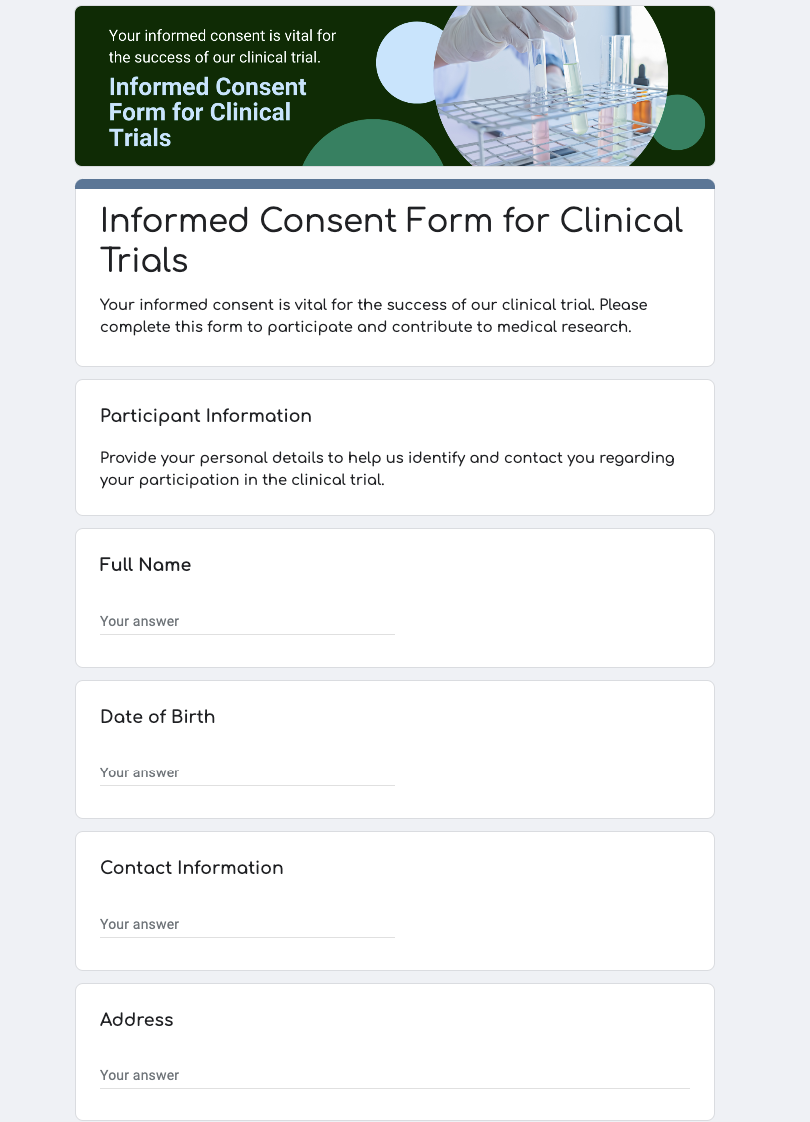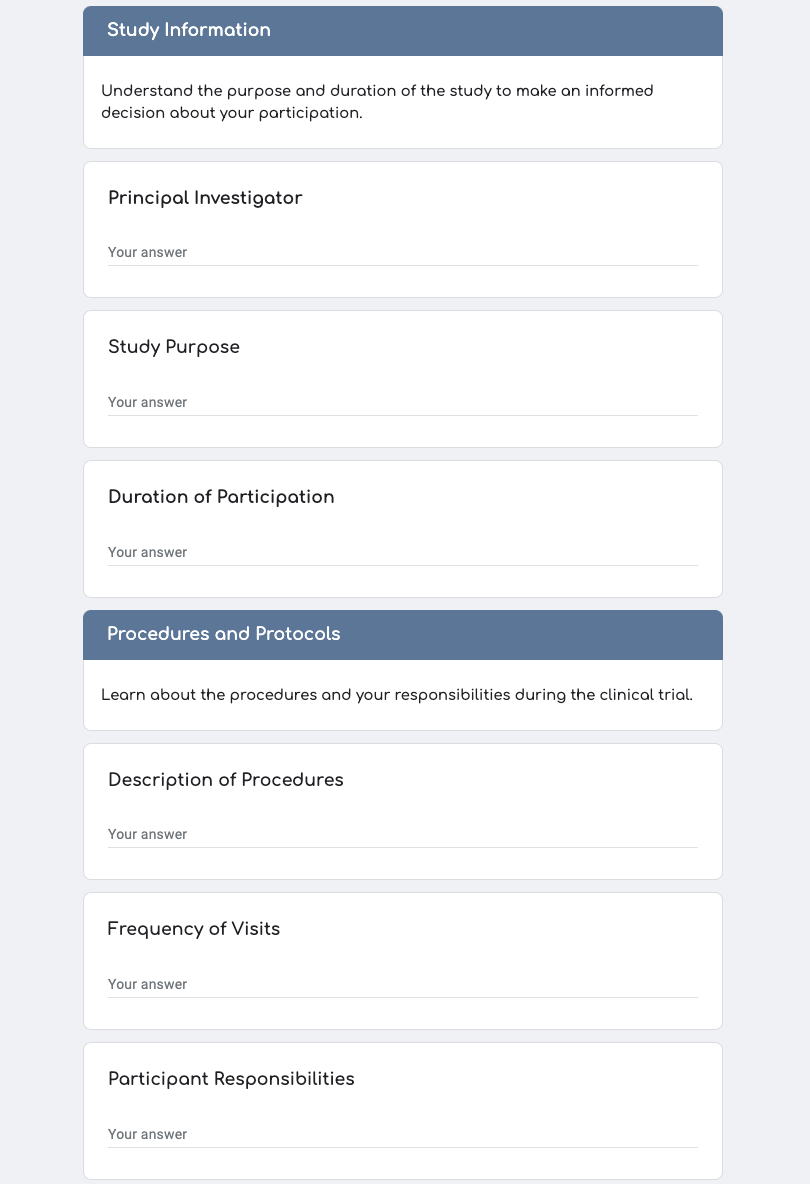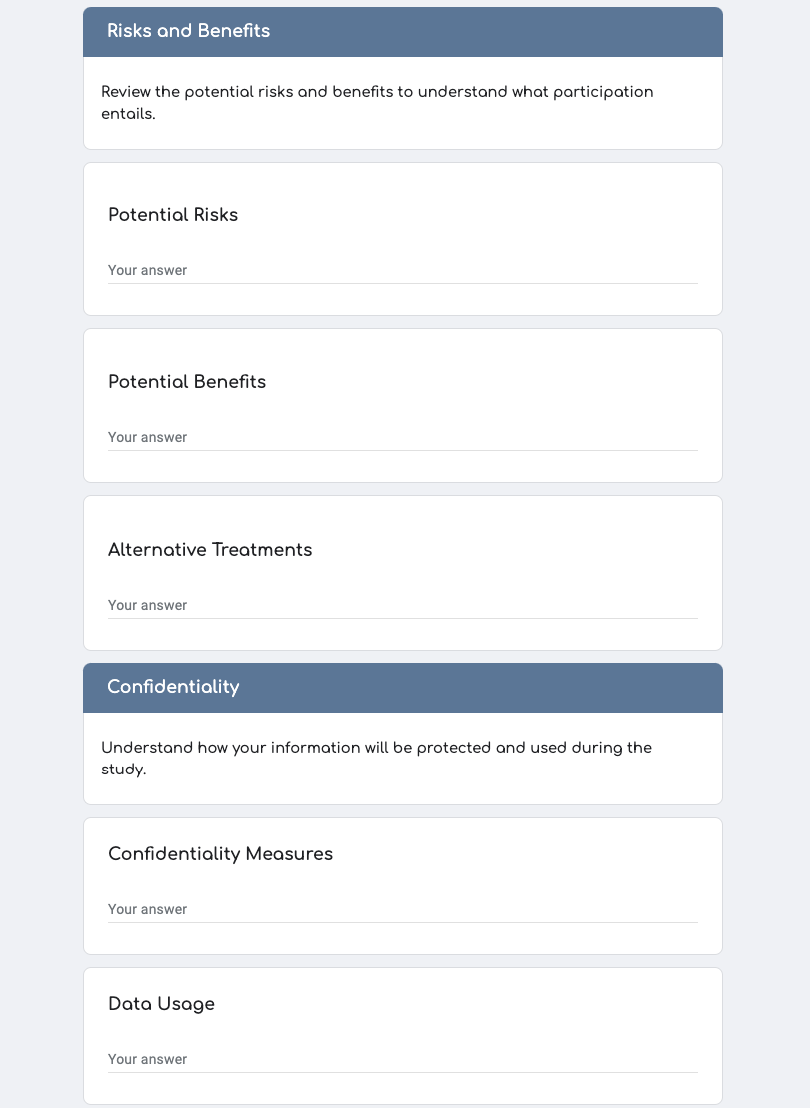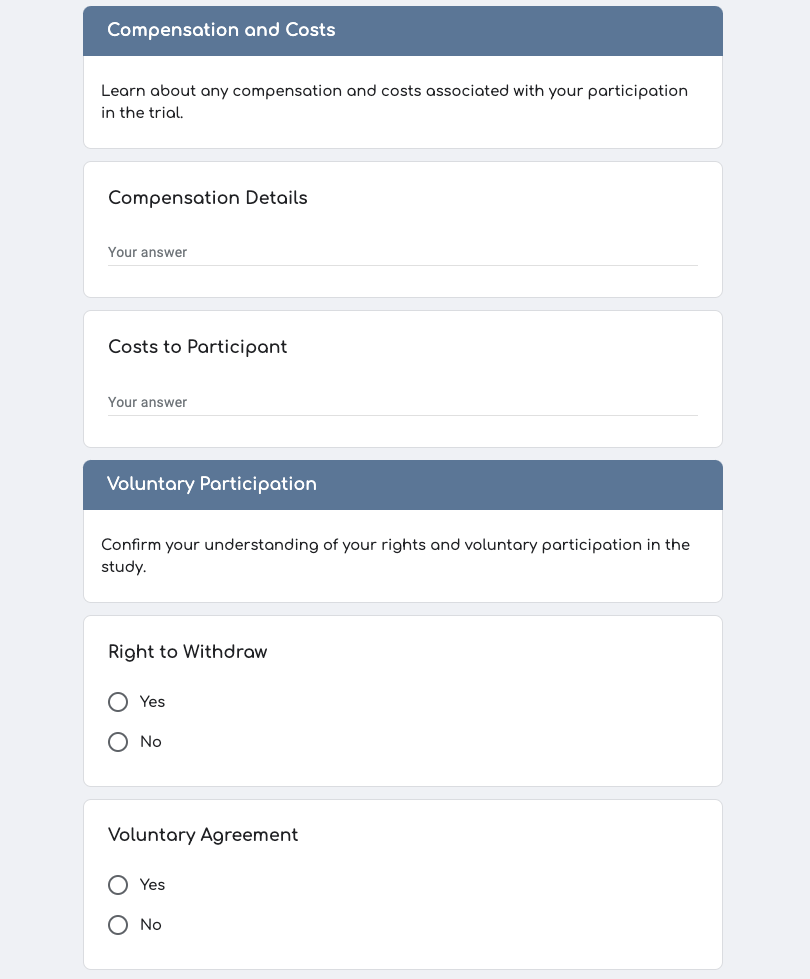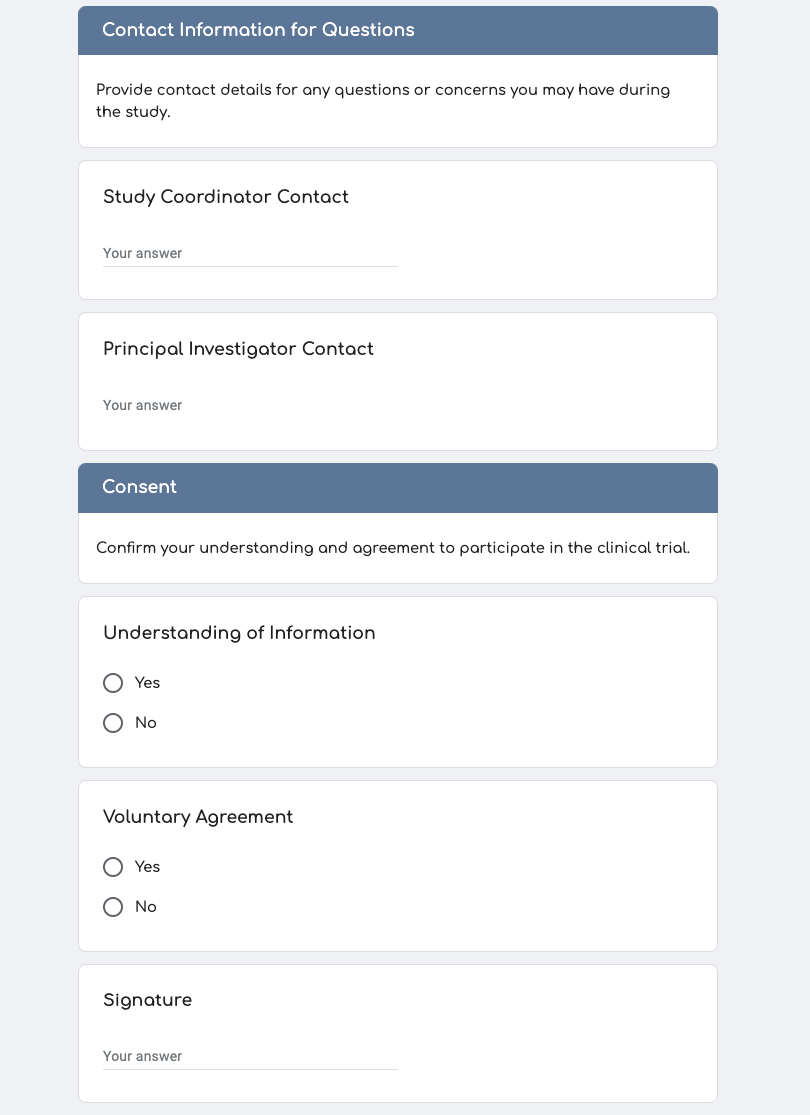Informed Consent Form for Clinical Trials
FREE
Expertly crafted for clinical trials, our Informed Consent Form ensures compliance and clarity. Designed for ease, customize and securely gather responses from prospective participants. Vital for meeting regulatory standards, it mandates consent from legal representatives promptly after trial entry (refer Section 16, HRA guidance). Simplified for usability, this high-quality form facilitates crucial interactions with simplicity and precision.


